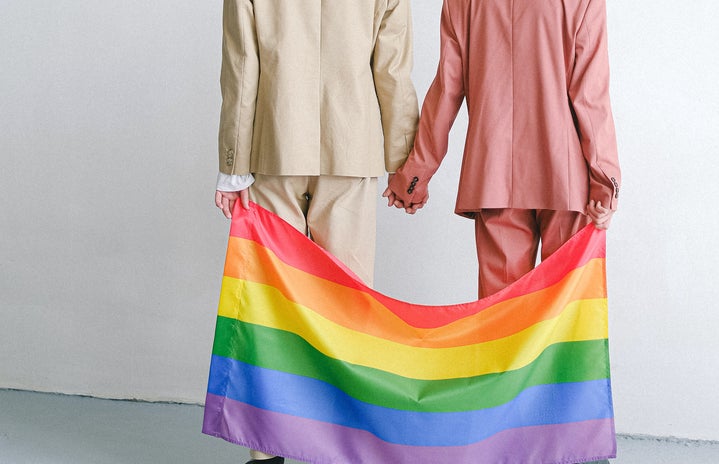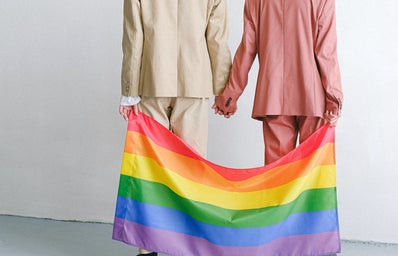According to Medical News Today, homophobia is “society’s negative perceptions, intolerance, and stigma toward people with same-sex attraction.” Internalized homophobia occurs when queer individuals believe these biases are true, accepting harmful ideas about themselves as a result.
College is notorious for being a time of self-discovery. Typical aspects of this process, such as engaging in new social settings or dating, are experienced very differently by queer people burdened with the weight of internalized homophobia. For many, college is the first time being away from their hometown and family; it may also be the first time they are in a safe place to explore a non-heterosexual identity and grapple with internalized homophobia. The queer community at Cal Poly has come forward to discuss these experiences, shedding light on an important issue.
We live in a fundamentally heteronormative society. Queer folks often have a hard time establishing how to express their sexuality due to lack of example, or fear of ostracization for not being “normal.” I interviewed a Cal Poly student who chose to remain anonymous, so I will refer to her as Maya throughout this article. Maya discussed this feeling, “Going on a date, and being surrounded by all straight couples. You feel out of place.” Navigating romance is confusing enough regardless of gender or sexuality. The obstacles presented by internalized homophobia complicate things further. Another student Ryer Lauth said, “Trying to figure out dating, expecting it to be like what I’ve seen in heterosexual relationships, has made me really frustrated.” He also pointed out that there is a much smaller pool of possible partners than there is for straight people, making it less likely to meet somebody he has a genuine connection with.
The idea that straightness is the norm or the default can also cause something described as queer imposter syndrome. Maya discussed some of her earlier internal struggles with same-sex attraction, “Is this just like a really nice, intimate friendship? And I’m not actually queer?” Queer imposter syndrome can be intensified for those who are also attracted to the “expected” opposite sex. Student Olivia Andrade explained how she often feels that her queer experience is less valid because she is bisexual. Andrade said, “I convinced myself that attraction to women was just confusion, because I’m also attracted to men.” It is also common for bisexual women to not be believed about their sexuality.
Internalized homophobia can impact nearly every aspect of one’s life, including platonic relationships or friendships. Maya described her anxiety surrounding coming out, fearing that all of her straight girl friends would think she had a crush on them. Lauth said that since coming out, he has found “interactions with straight men often uncomfortable or confusing.” He expressed a desire for straight guy friends, but usually feeling unwelcome or out of place.
Perhaps the most impactful cause of internalized homophobia is experiencing homophobia inflicted by others. Maya told a story of being verbally harassed at a park with a former partner, and noted that encounters like those are not rare. She emphasized that giving into those hateful beliefs goes against her “higher self.” However, it is clear that those external interactions translate internally. “Those thoughts… while I know that I don’t agree with them, I carry them with me,” said Maya.
All things considered, internalized homophobia is a defense mechanism. Unfortunately, it can be scary and dangerous to be gay in a somewhat intolerant and highly heteronormative society. Lauth admitted, “At times, I definitely try harder than I should to come off as straight passing.” Ideally, heterosexuality wouldn’t be the default, and being queer wouldn’t be considered unusual. Lauth said that his coming out process would be “very different if the topic wasn’t a grand reveal of my deep secret but instead something more casual like sharing my favorite color.”
Ultimately, it becomes a matter of how to live with and approach internalized homophobia. For many, those negative thoughts may never fully go away, just as society may never become perfectly accepting. However, we are all capable of practicing acceptance and empathy towards others, and most importantly ourselves. Lauth demonstrated a wise mindset regarding his struggles, “It’s much easier to figure out what I want than what others expect when they see me; so if I want to wear heels, I’m gonna.”

